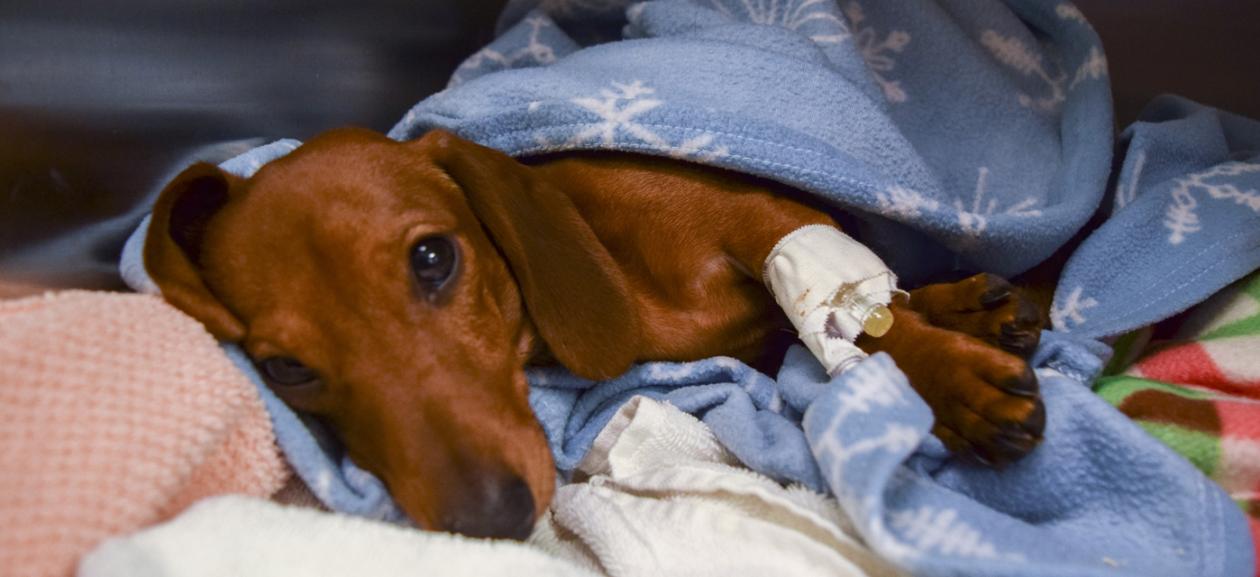
Parvovirus: What You Need to Know
Parvovirus is a potentially life-threatening illness, most commonly affecting young dogs between the age of 8 weeks and 1 year old. Highly contagious, the virus is transmitted through contaminated dog feces and can live for long periods of time in the environment (sometimes several years). Because it can be fatal, it’s important for pet lovers with a young dog to know the symptoms and get their pet vaccinated early on.
These key symptoms of parvovirus usually appear between three to seven days after exposure:
- Lethargy
- Vomiting and loss of appetite
- Fever
- Diarrhea (usually bloody)
- Shock (manifesting as a rapid heart rate and severe weakness)
If you suspect your puppy is infected with parvovirus, seek veterinary care immediately. The survival rate for infected puppies is estimated at 75-80 percent, but largely depends on an early diagnosis and proper treatment. The vaccine against parvovirus infection is highly effective and should be used as a first line of defense.
“Puppies should start the parvovirus vaccine series when they are approximately 6 weeks of age,” said DoveLewis Dr. Erika Loftin, a critical care specialist. “Also, be sure to keep your puppy away from unvaccinated dogs and common areas like dog parks until they are fully vaccinated, usually after 16 weeks of age. The vaccine is very effective, but protection is not conferred until the initial vaccine series is completed.”
If your puppy contracts parvo, Dr. Loftin recommends not bringing a new puppy into the house for at least six months to a year following the onset of the illness. In addition to being highly contagious, the virus can linger throughout the house and outside environment, and it can easily infect a young dog with no immunity. Even puppies treated for parvovirus can remain contagious for two to four weeks after recovery. Keep them away from other dogs, and notify your neighbors and family members with canines, so they can avoid exposure and take precautionary measures. Bleach solution is effective at killing parvovirus to prevent transmission.
Talk to your veterinarian about vaccinating your puppy against parvo. If you notice any symptoms in your puppy associated with the parvovirus, seek veterinary care immediately.
Recent Posts
Marijuana Toxicity in Pets: What You Need to Know
As availability of marijuana increases in the Portland area since legalization, so have the number of marijuana toxicity cases treated at DoveLewis. Our doctors warn pet owners of the potential risks to their dogs and cats if marijuana is ingested in any form.
Dog Bite Prevention Tips
Now more than ever, people are venturing outside with their pets to get fresh air. This is increasing the possibility of interactions with other dogs that can lead to bites and injuries. DoveLewis is sharing tips to help prevent this from happening so animals and humans can stay safe.
How to Build a Pet First Aid Kit
Every pet owner should have a pet first aid kit handy in case of an emergency. If you need to put one together, we’ve got you covered!



